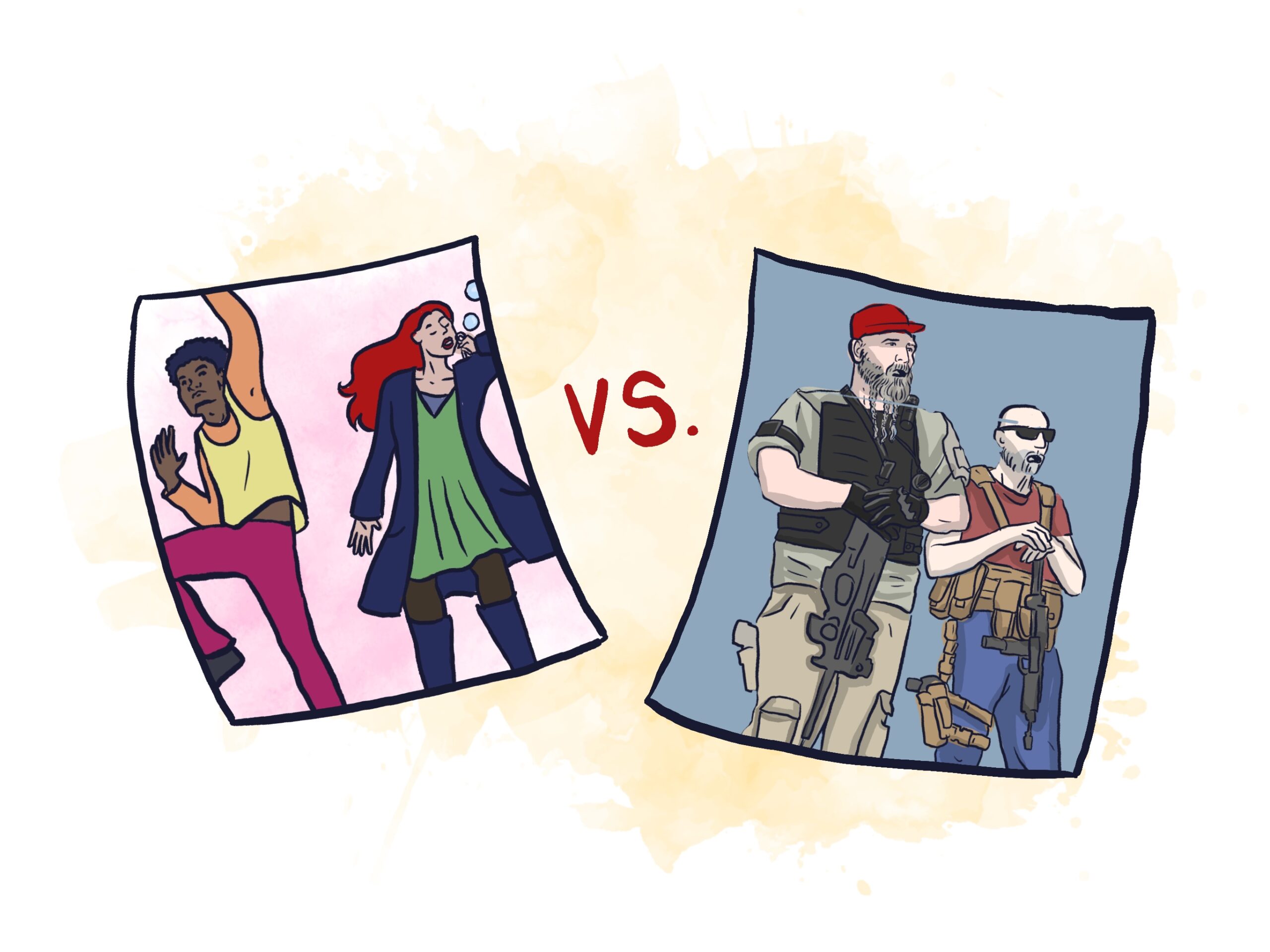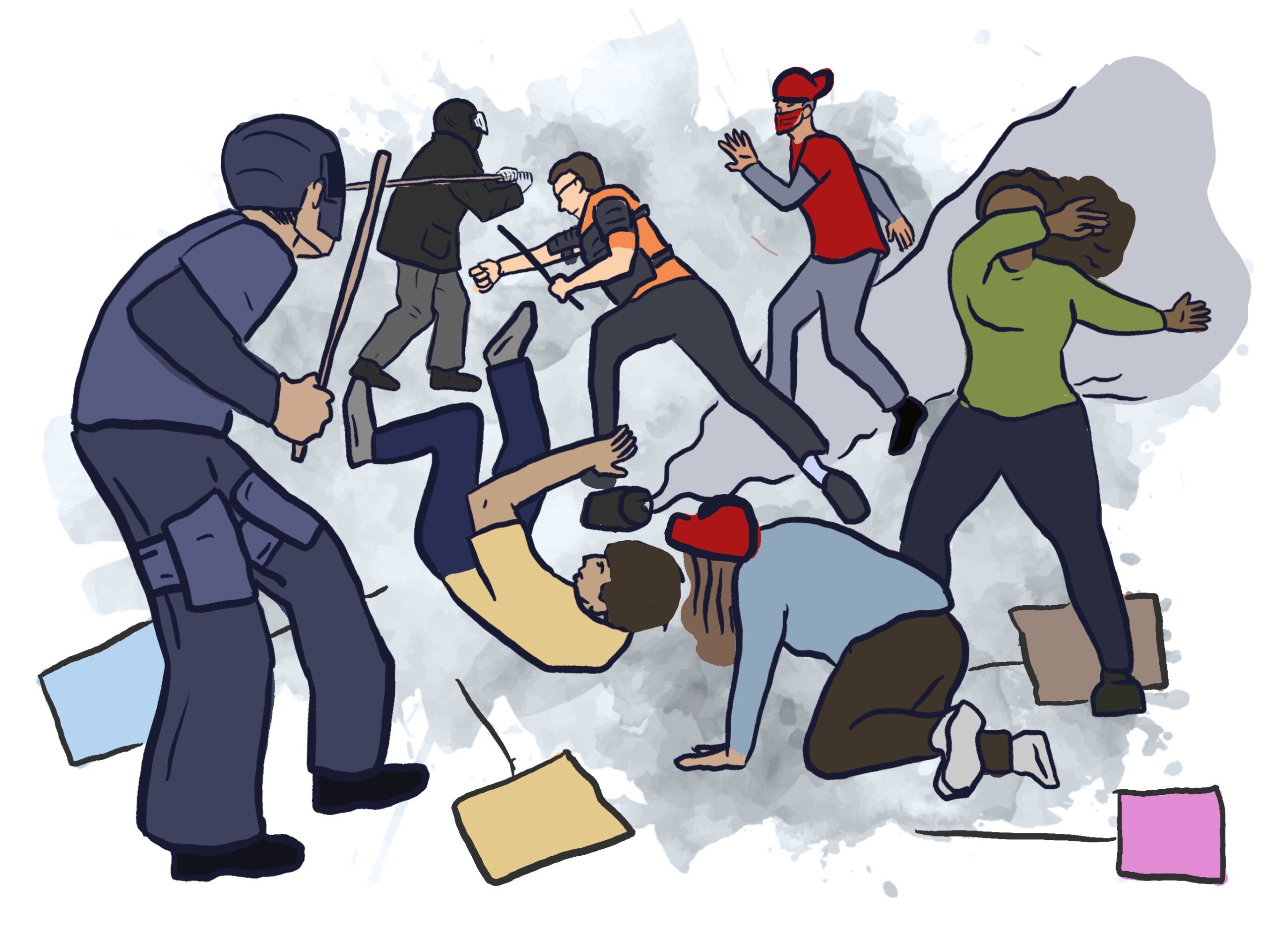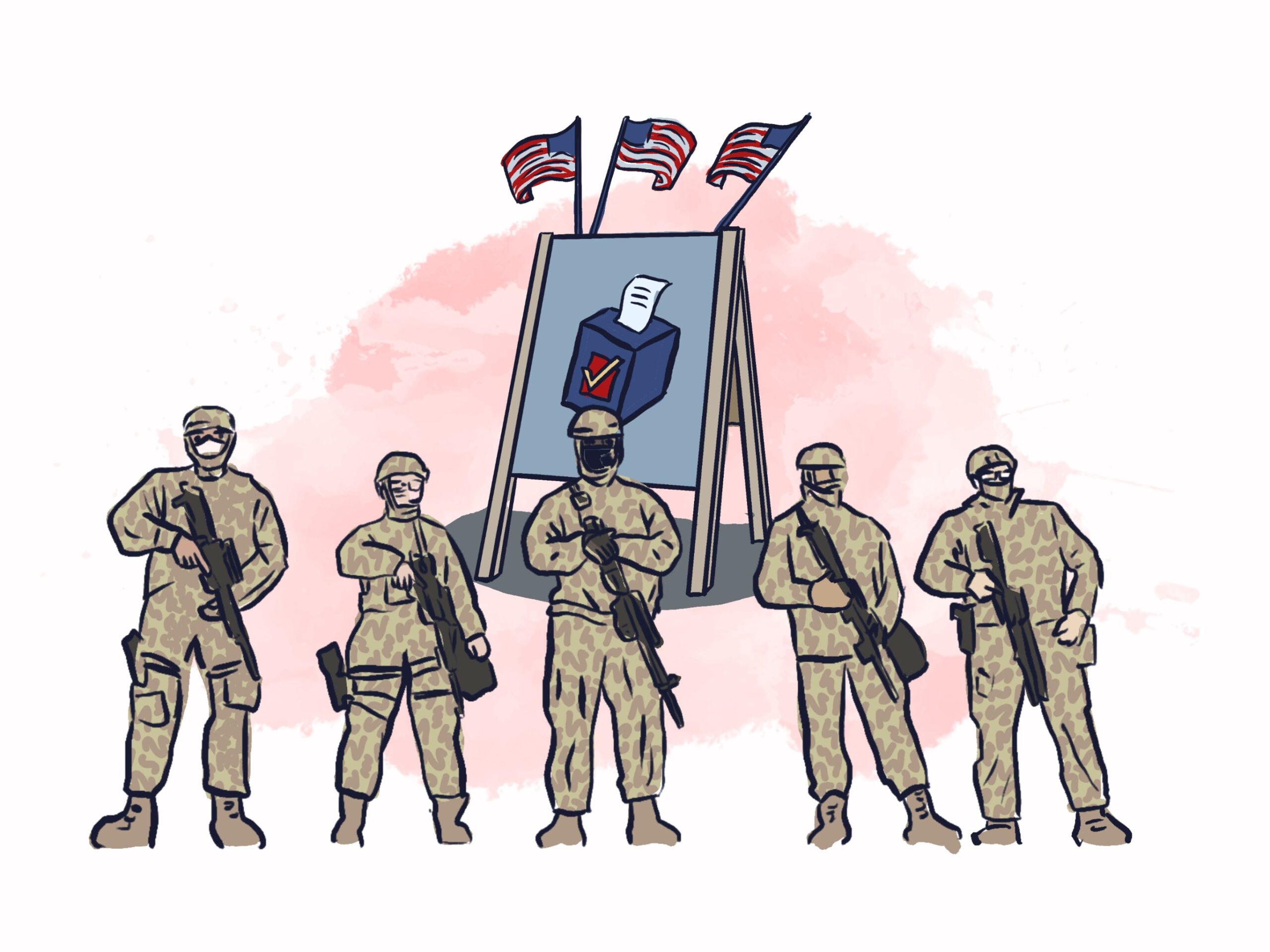You don’t go to D.C. Instead, you organize local actions in a city square. You have a carnival-like atmosphere, with bubbles and street dancers. Your fears of counter-protestors don’t materialize — the most extreme MAGA folks have largely gone to D.C. When your protest is over, you have shown a family-friendly, pro-democracy event in contrast to the angry, armed insurrectionists.


The violent clashes in D.C. peak. For a moment, it looks like a civil war could break out. But Donald Trump is not a general, and he doesn’t have a clear internal team around him — just a lot of loyalists who bicker and fight. So when Trump is arrested on charges of treason, the Trump loyalists split into multiple, divided camps. They fight over tactics, strategy, location, and funding — and the military is able to regain control of D.C. Thousands of Trump supporters are arrested.
Your protests have had a reassuring effect. You later hear of a military colonel who says the protests helped shore up support inside the military. You certainly know it helped people around you feel less scared.


The transition of power happens on January 20, 2025 with a large military presence. President Harris is inaugurated to fulfill a four-year term. The country weathers this tense period, but barely. You know there’s much work ahead, but you feel proud for your role in helping your country avoid a coup and building an alternative.
THE END.
You survived the transfer of power. But creating a deep democracy is a much bigger task ahead. Researcher Stephen Zunes has identified four things we need to stop a coup: widespread opposition, nonviolent discipline (to avoid giving the wanna-be autocrat excuses for more violence), alliance building, and refusal to recognize the coup plotters as legitimate.
Read Closing Thoughts from the author.
